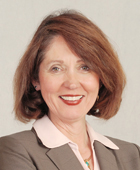
There was synergy between Dallas and Washington, D.C., on Tuesday. Prominent speakers at the LeadingAge conference in Dallas addressed what it means to age well and how people’s understanding of aging is evolving — and their message happened to coincide with what experts said the same day at a Senate roundtable.
Misconceptions and misinformation about aging hamper long-term care workers in their efforts to help people live longer and enjoy a higher quality of life, said Cheryl Phillips, M.D., senior vice president of public policy and advocacy at LeadingAge. She is also the provider association’s in-house geriatrician, and she wore that hat as she addressed a large General Session audience at the annual convention Tuesday.
There are a number of physical and mental exercises that can support aging well, Phillips noted. For instance, she stressed the importance of staying connected to a social support system and maintaining a sense of purpose. These factors also were hammered home by Dan Buettner, who spoke after Phillips.
Working with National Geographic, Buettner has studied cohorts of the longest-lived people in the world, such as men living in an area of the Italian island of Sardinia. He has identified nine common characteristics these far-flung communities share. These characteristics include lifestyles involving regular physical activity, plant-based diets, strong social networks and living with a sense of purpose into old age.
Buettner and Phillips both refuted what they said is an insidious misconception about aging, which is that it will inevitably lead to disease — or that aging itself is a type of disease — and that genetics doom certain individuals to the ailments and injuries of age.
This idea also was conveyed in the nation’s capital on Tuesday, during the Senate Special Committee on Aging’s “Tackling Diseases of Aging: Why Research Collaboration Matters” roundtable.
Northwestern University’s Richard Morimoto, Ph.D., discussed how the genetic basis of aging is “not related to a disease.”
Morimoto and the other roundtable participants engaged in a wide-ranging discussion that touched on questions such as how sequestration cuts have affected aging research, and how to balance spending on chronic disease research versus investigations into the basic process of aging. Click here for a list of panelists, written testimony and a video of the event.
The roundtable participants were in Washington in advance of a summit hosted by the National Institutes of Health. The meeting today and Thursday will involve 50 experts on how the biology of aging relates to chronic disease.
The LeadingAge conference concludes in Dallas today.




